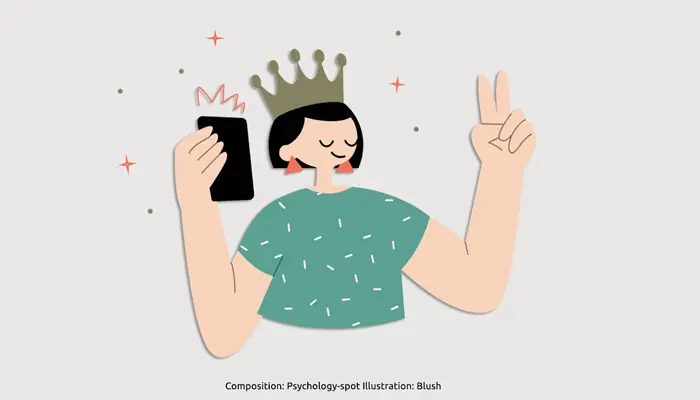
There are people who always have to be right. They want to win at all costs. And even if you dismantle their arguments one by one, they won’t change idea. It is likely their life depends on that. And in a way it is so, because they have built their identity around that imperative need to be right and impose their opinion on others.
The need to be right hides a deep insecurity
People who always have to be right, usually adopt a dominant body language through which they project an image of security and superiority. It is also common for them to use an arrogant language whereby they close all ways of escape so that the only valid opinion is theirs.
These people always know what is happening. They often go through life as smarties. They are always ready to explain to you where you went wrong. And even if you are a specialist in a field of knowledge, they will know more than you and will turn a deaf ear to your proposals and opinions.
From this profile, people who always need to be right behave like narcissists. They are arrogant people who feel superior. They have an exaggerated perception of their “self” fed by an excessive ego.
However, behind the desire to be right there is something much deeper than an excessive ego.
A study carried out at the University of Villanova revealed that greatness alone, without the component of vulnerability, is not related to this desire to impose a personal opinion. In fact, although the most vulnerable narcissists, those with low self-esteem, are not as likely to brag, they do need to validate their image through defensive strategies.
Therefore, the desire to be right is not only a tactic to impress the others and demonstrate their alleged knowledge, intelligence and experience, but is a strategy to validate themselves. People who have to be right really need to convince themselves of their value.
This attempt to impose themselves on the others comes from the feeling of fragility of the “self”, who strives to maintain a perception of himself as someone exceptional. It would respond to the need to impress themselves and validate their self-concept.
Wanting to be always right would, therefore, emanate from a core of vulnerability of narcissism, which becomes more intense and maladaptive the further down the road the life of that person rolls. That is why, even if the world collapses around them, their arguments lose weight and the evidence goes against them, they will continue to maintain that they are right.
How to deal with people who always have to be right?
When you grow mature, you realize that having peace is more important than being right. When you are aware of your strength and what you are capable of, you do not need to demonstrate anything to anyone, not even yourself. That level of self-knowledge gives you perspective. It offers you the essential psychological distance to know which battles are worth fighting for and which are better to let go of.
Maturity also confers the wisdom of understanding that we cannot always change people. Each one must follow his path. Learn from his mistakes. Fall down and get up. That journey is part of his life’s journey and, even if you have the best intentions, you cannot always turn a person obsessed with being right into someone with an open mind and flexible thinking.
That means that in the majority of cases you don’t have to get into an argument with a person who always has to be right. Maybe you should ask yourself how much you are interested in giving your opinion and what value it could bring. In the most extreme cases, you might even wonder how much you are interested in maintaining a relationship with that person.
Of course, sometimes there is no choice but to accept the challenge, especially when that person wants to impose his way of seeing the world or his absurd and capricious decisions can end up hurting you.
In that case, instead of openly declaring war, the smart thing to do is encourage him to think. And you can do this through questions that offer an alternative to to his thinking, such as, “How did you come to that conclusion?” or “Have you ever thought of …?”
Hopefully, those questions will make him rethink his opinion and be able to contemplate another option without feeling too attacked to become defensive.
Finally, it is better to be aware that often we are wrong and we do not know everything because in this way we will always be motivated to seek, grow and improve. The alternative, believing that you are always right, means, among other things, not feeling the need to change and learn. An old saying says: “Either you’re happy or you’re right …”, who knows who it belongs to, but it’s so true.
Sources:
Dashineau, S. C. et. Al. (2019) Pathological narcissism and psychosocial functioning. Personal Disord; 10(5):473-478.
Eidlin, M. & Bernardi, R. (2017) Narcisismo de piel fina o vulnerable y narcisismo de piel gruesa o grandioso. Similitudes y diferencias. CEIR; 1(1): 1-21.



